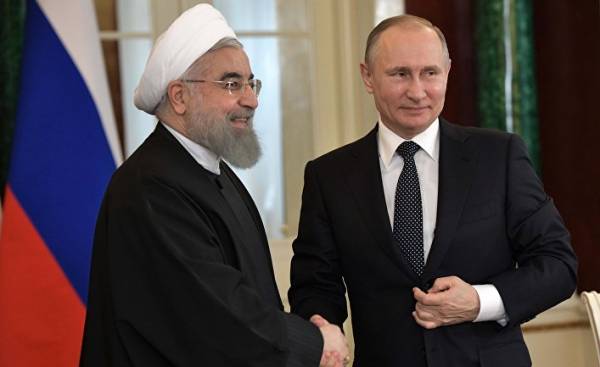
To achieve this diplomatic goal, Washington would have to promise one of those two countries — Russia probably is something worthwhile to look away from his ally. But even if we assume that Washington is eager to do it, us officials had not much to offer to the Kremlin.
Attempts to approach this problem from the other direction, i.e., from Iran, will be no less difficult challenge: any effort at rapprochement with Tehran will be faced with strong opposition within the country, and also from the Arab allies, especially Saudi Arabia.
There is no doubt that the close ties between Russia and Iran has complicated US policy in the middle East. Russia and Iran together have the Syrian President Bashar al-Assad’s military and strategic support. In addition, their efforts were the key reason for the failure of American attempts to impose its own order in Syria.
In Syria, it is obvious that the United States has nothing to offer Russia to encourage Moscow to change its current course. So, Washington will have to seek leverage, necessary for making a deal with the Kremlin, outside Syria. But where American officials intend to seek such incentives remains unclear. Even the proposal to recognize the legitimacy of Russia’s takeover of Crimea, the annexation of which in 2014 led to the imposition of Washington’s economic sanctions against Russia, at this point would not be attractive enough for Moscow. In the end, the process of Crimea’s integration into Russia is proceeding rapidly, despite the opposition of the West, as the Russian economy continues to adapt to the sanctions.
Returning to the idea to try to break the partnership between Russia and Iran, the administration trump was faced with the dilemma that served as a hindrance to U.S. foreign policy for over 10 years. One of the previous unsuccessful attempts to drive a wedge between Moscow and Tehran have been efforts to encourage Iran to participate in the gas pipeline project “Nabucco”. Some high-ranking American officials openly said that such cooperation could lay the basis for restoring contacts with Tehran. But the proposal almost immediately faced with considerable internal and external obstacles, and the “Nabucco” project has stalled.
Today, Washington does not have even such weak arms. A vivid illustration of the failure of US influence was the fact that Washington officials were not invited at a meeting in Kazakhstan of multilateral talks on Syria, which was dominated by Russia, Iran and Turkey.
So instead of trying to undermine Russian-Iranian partnership, the U.S. may have to accept the new realities in middle East politics with all its consequences in Syria and the rest of the region.







